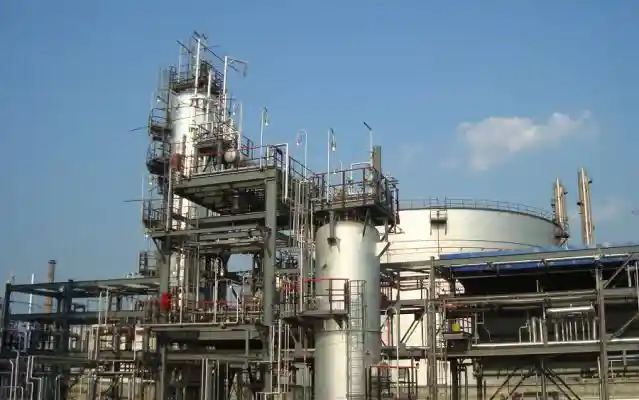NNPC May Sell Refineries After $18 Billion Wasted on Failed Repairs – CEO Bayo Ojulari
- Advertisement -
The Nigerian National Petroleum Company Limited (NNPC) is weighing the sale of some of its long-dormant refineries after years of costly yet ineffective rehabilitation efforts. Group Chief Executive Officer, Bayo Ojulari, disclosed this during an interview with Bloomberg on Thursday at the 9th OPEC International Seminar in Vienna, Austria.
TJ News Nigeria gathered that Ojulari revealed the company is currently undergoing a comprehensive review of its refinery strategies, a process expected to be completed before the end of 2025. He indicated that all options—including outright sale—are being considered as part of a broader plan to address ongoing operational failures.
“We’re reviewing all our refinery strategies now. We hope before the end of the year, we’ll be able to conclude that review,” Ojulari said. “That review may lead to us doing things slightly differently… sale is not out of the question.”
- Advertisement -
Also Read:
CTC of Natasha’s Suit Against Senate Released, Clarifies Court’s Recall Directive
EFCC Arrests Ex-NNPCL Top Officials Over Alleged $7.2 Billion Refinery Fraud (Full List)
- Advertisement -
Billions Invested, Little to Show
Over the past several years, NNPC has invested heavily in attempts to revamp the country’s state-owned refineries located in Port Harcourt, Warri, and Kaduna. However, the results have been dismal.
Although the Port Harcourt refinery briefly resumed operations in November 2023, it was shut down again in May 2025 for maintenance, highlighting persistent issues with sustainability and performance.
Ojulari admitted that much of the infrastructure is outdated, and technologies brought in during rehabilitation efforts have underperformed.
- Advertisement -
“We’ve made quite a lot of investments… Some of those technologies have not worked as we expected,” he said. “What we’re finding is that [revamping] a very old refinery that has been abandoned for some time is becoming a little bit more complicated.”
Rising Operational Costs Fuel Uncertainty
Nigeria’s high crude oil production costs remain a significant concern, with Ojulari confirming that operational expenses range between $25 and $30 per barrel, driven in part by the country’s heavy expenditure on pipeline security.
“Operating costs right now in Nigeria are hovering over $20 per barrel, which is quite high,” he explained. “Today, we have 100% availability of our pipelines, but that came at a significant investment.”
Despite the elevated costs, Ojulari expressed optimism that the security investments will yield long-term benefits by eventually reducing production costs.
Refineries May Be Sold to Strategic Investors
TJ News Nigeria can authoritatively report that the review could result in the refineries being sold to local or international investors with technical expertise and capital required to operate them efficiently.
The federal government has long faced criticism for the poor performance of its refineries, which have historically operated below capacity and have been major drains on public finances. A report by the Nigeria Extractive Industries Transparency Initiative (NEITI) indicated that over $25 billion had been spent on refinery rehabilitation between 2010 and 2022, with no sustainable output.
The potential sale of the refineries is likely to spark debate among industry stakeholders and policymakers, especially against the backdrop of a heavily import-dependent downstream sector and ongoing fuel subsidy reforms.
- Advertisement -
Oil Production Target Set at 1.9 Million Barrels/Day
In spite of these challenges, Ojulari said the NNPC is pushing to increase Nigeria’s daily oil production to 1.9 million barrels per day by December 2025. This marks an ambitious rise from current levels, as the country continues to struggle with production shortfalls due to theft, sabotage, and operational bottlenecks.
“We are working closely with our partners and stakeholders to ramp up production. Stability and investment in infrastructure are key,” Ojulari said.
What Next for Nigeria’s Refinery Sector?
While the final decision on whether the refineries will be sold is pending, industry analysts say the move could open up the downstream sector to more private participation, bringing in expertise and efficiency.
However, concerns remain over transparency, valuation, and the protection of public interest in any eventual sale.
The NNPC’s strategic review is expected to be completed before the end of 2025. Until then, uncertainty surrounds the future of Nigeria’s government-owned refineries, long plagued by inefficiency, mismanagement, and corruption.
TJ News Nigeria will continue to monitor developments from NNPC and the federal government as the refinery reform plans unfold.
- Advertisement -


